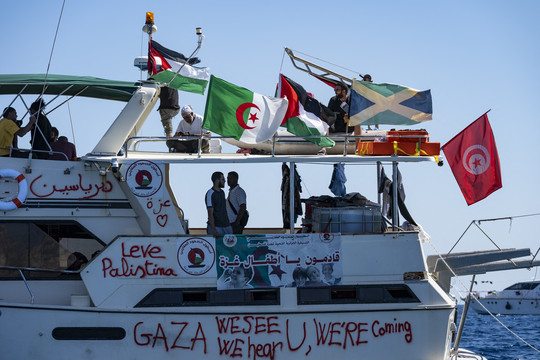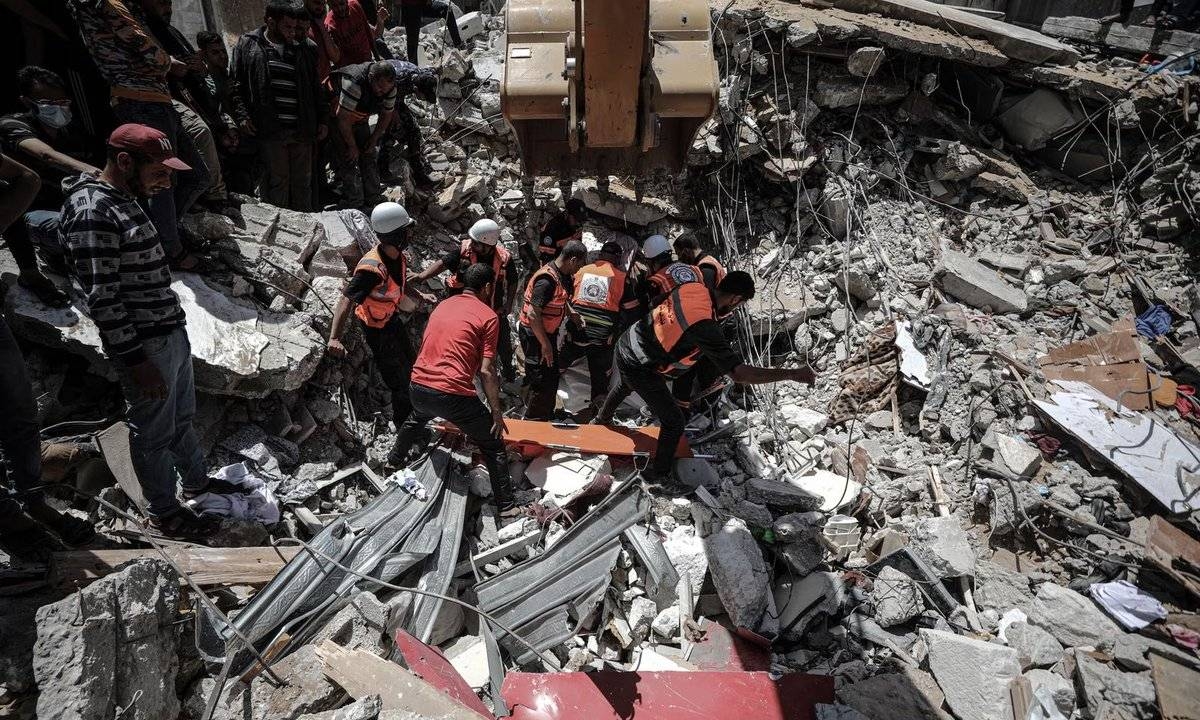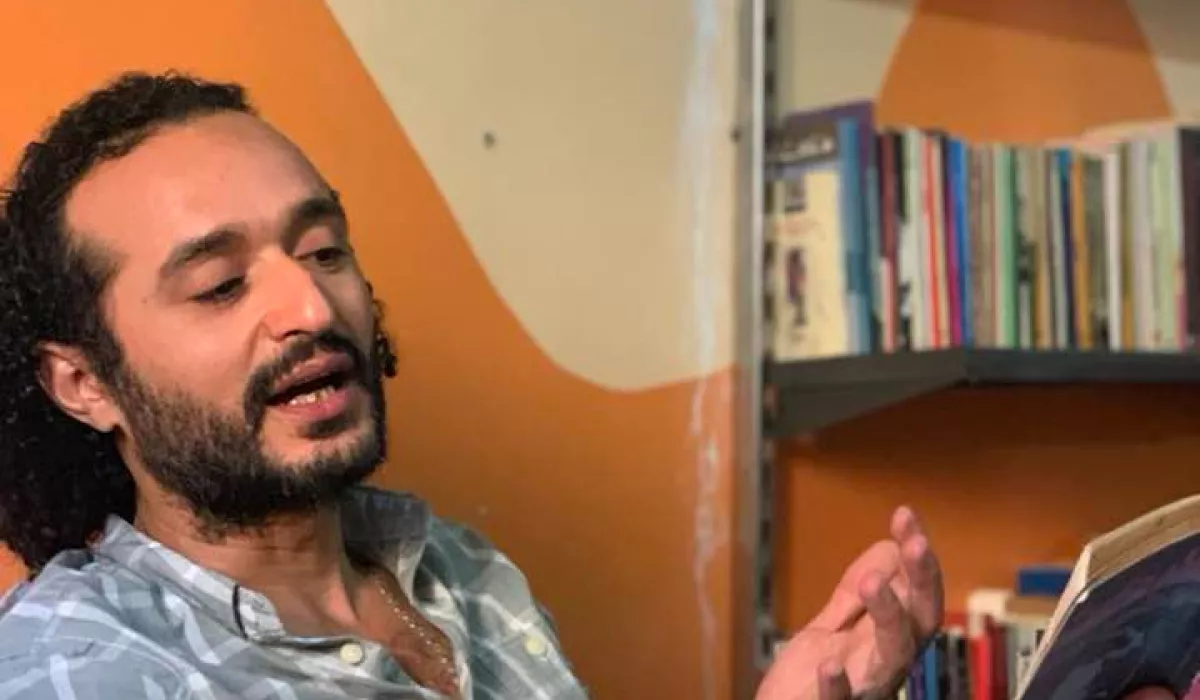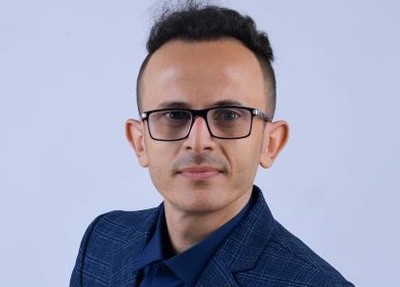
Majed Zayed’s Disappearance Highlights Houthi Assault on Press Freedom
September 29, 2025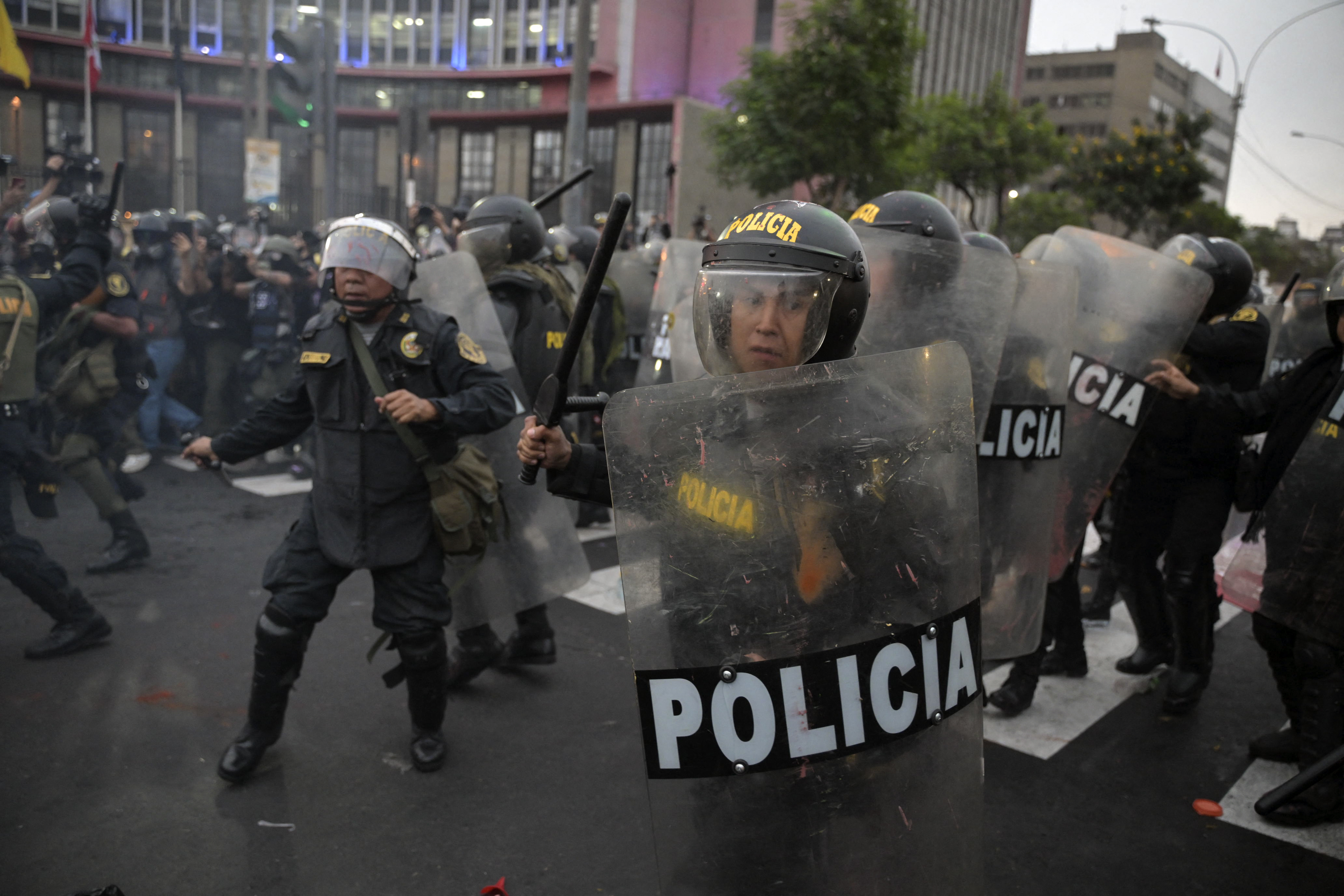
Peruvian Police Move to Criminalize Reporting by Pressuring Journalist Karla Ramírez
September 29, 2025September 29, 2025 – Palestine –
Journalists aboard the Global Sumud Flotilla, a civilian maritime mission bound for Gaza, face escalating dangers amid ongoing conflict and a tightening blockade. The International Federation of Journalists (IFJ) has sounded a strong warning about the precarious security conditions confronting media workers on this mission.
The flotilla, organized by humanitarian, religious, cultural, and civil society groups, departed from multiple Mediterranean ports to break the maritime siege on Gaza, establishing a sea corridor for aid, and drawing attention to the humanitarian crisis. Several journalists, including at least seven from North Africa, are on board to document events firsthand.
According to the IFJ, some vessels in the flotilla have already come under attack. Explosive devices have reportedly been deployed near certain ships—raising the risk of escalation. With the fleet now entering its final leg toward Gaza, there is a heightened possibility of interception by Israeli forces in the coming 48 hours, raising serious concerns for the safety of onboard journalists.
Emphasizing journalistic protection under international norms, the IFJ has called on Israeli authorities to guarantee safe passage and enforce provisions that shield media workers in conflict zones. The federation also encourages all journalists participating in the flotilla to keep open channels of communication with the IFJ for coordination and support.
The urgency of the call is underscored by the alarming toll of press casualties in Gaza: since the onset of conflict, at least 222 journalists have been killed while reporting in the enclave. The IFJ warns that continued aggression against journalists not only violates press freedom but also diminishes the prospect of transparent accountability in one of the world’s most contested spaces.
As conflict dynamics intensify, the risks facing the media become inseparable from the broader humanitarian crisis. The IFJ’s intervention offers both a protective pledge and a global reminder: journalistic work must not be treated as a combatant act. The world watches — and must insist — that the safety of reporters is upheld, even in the gravest of contexts.
Reference –

